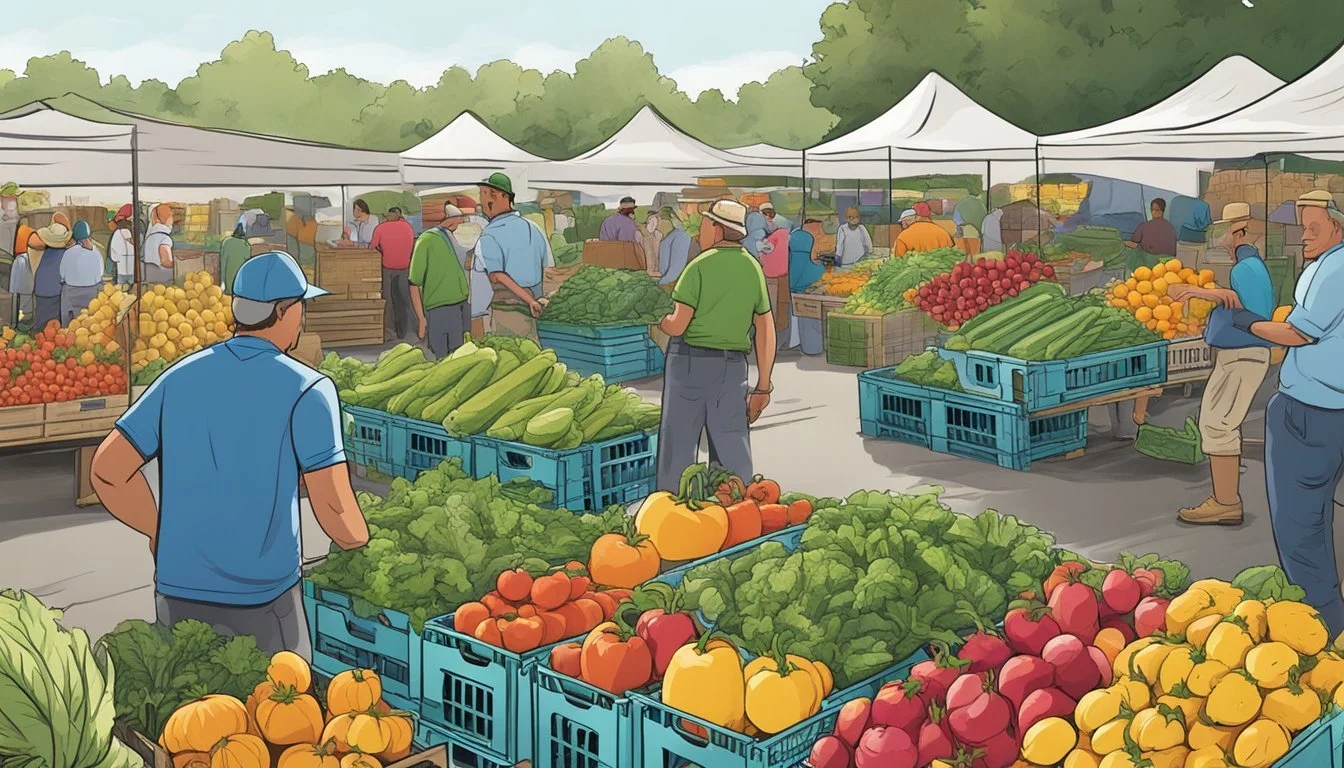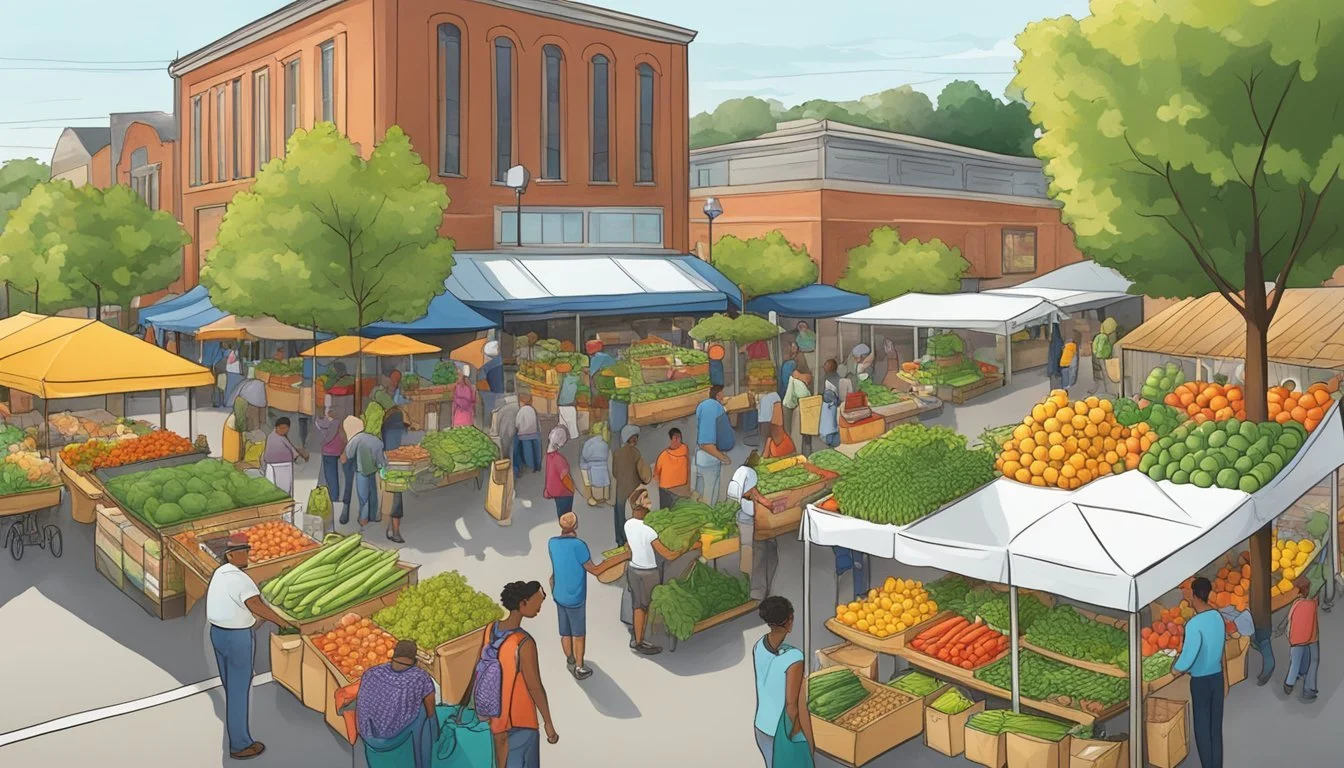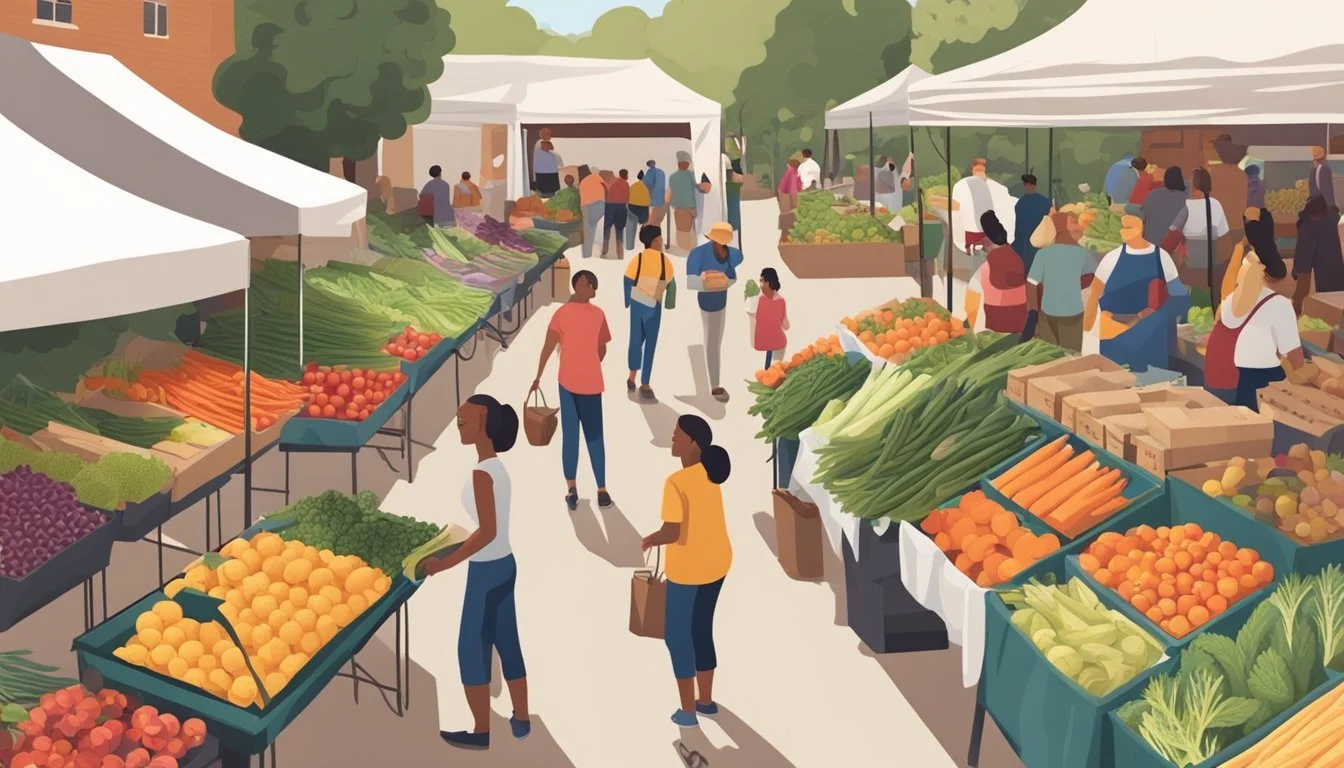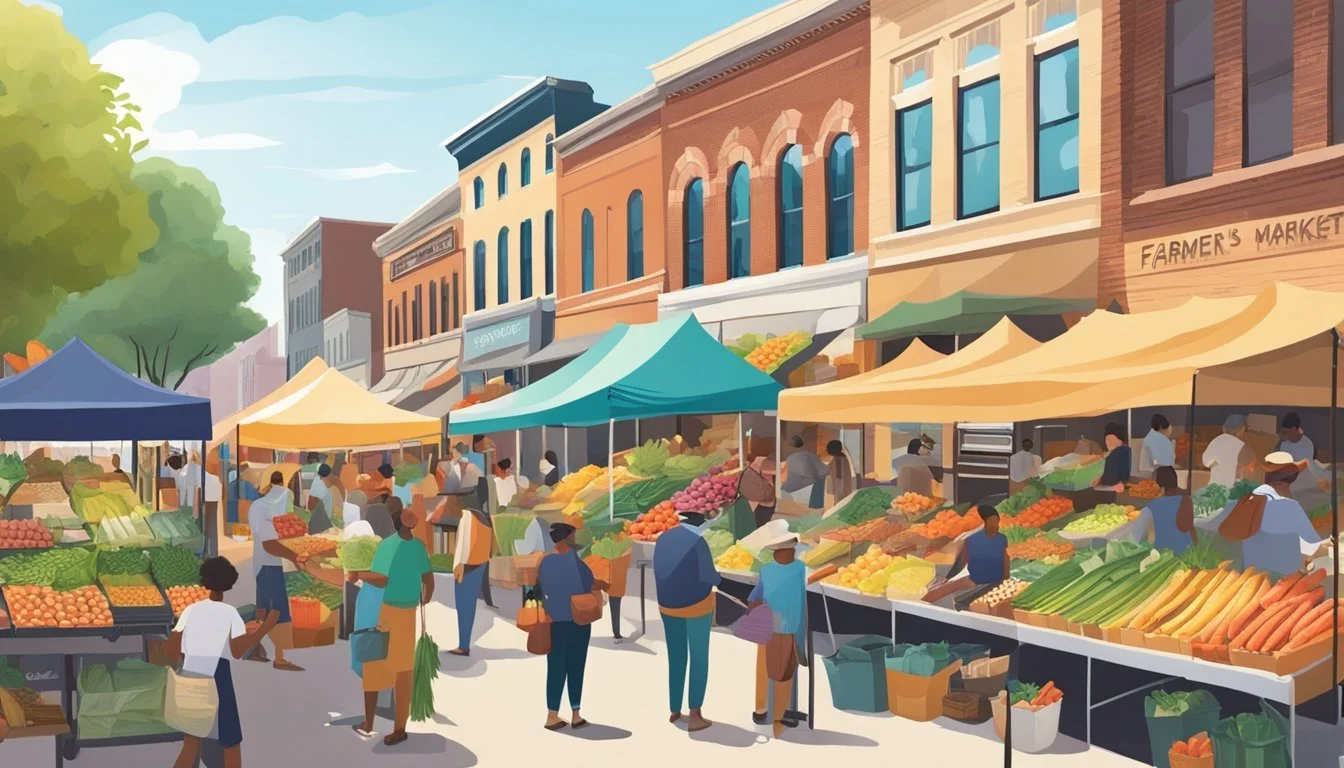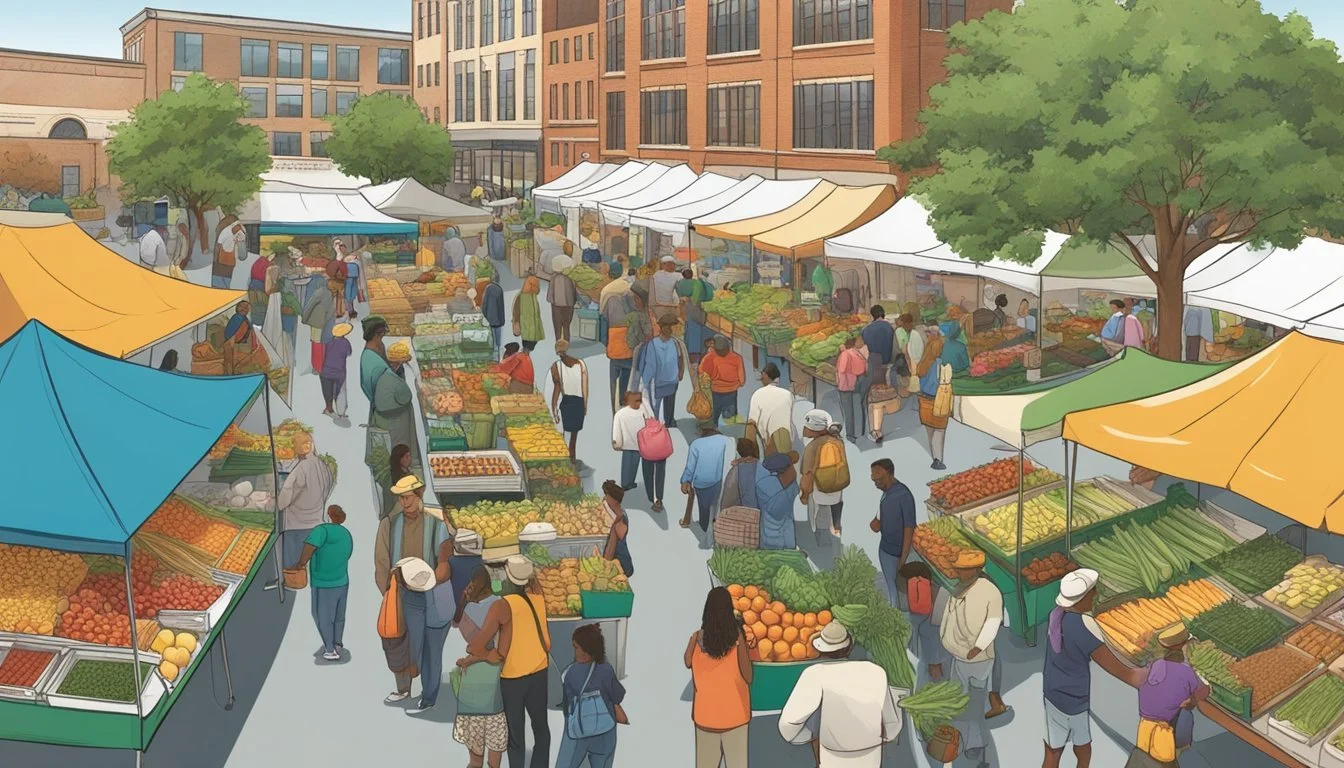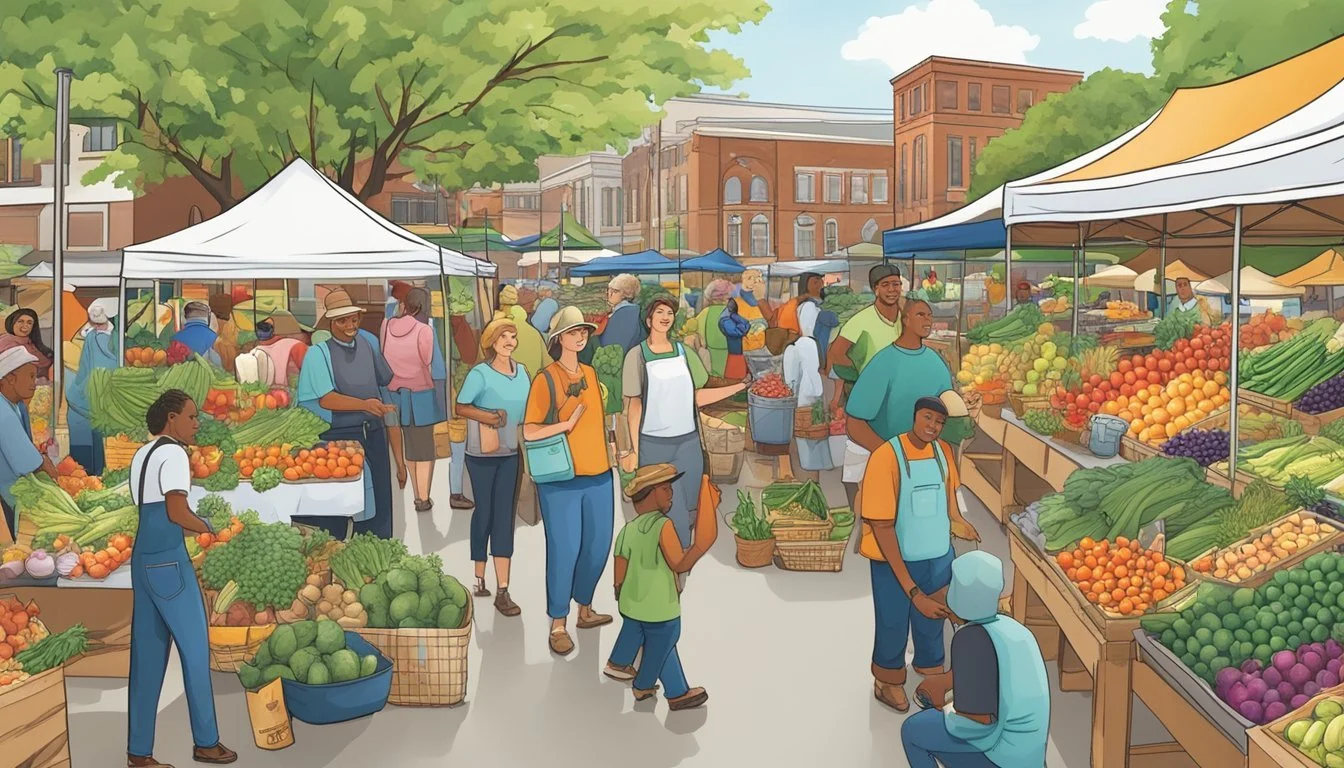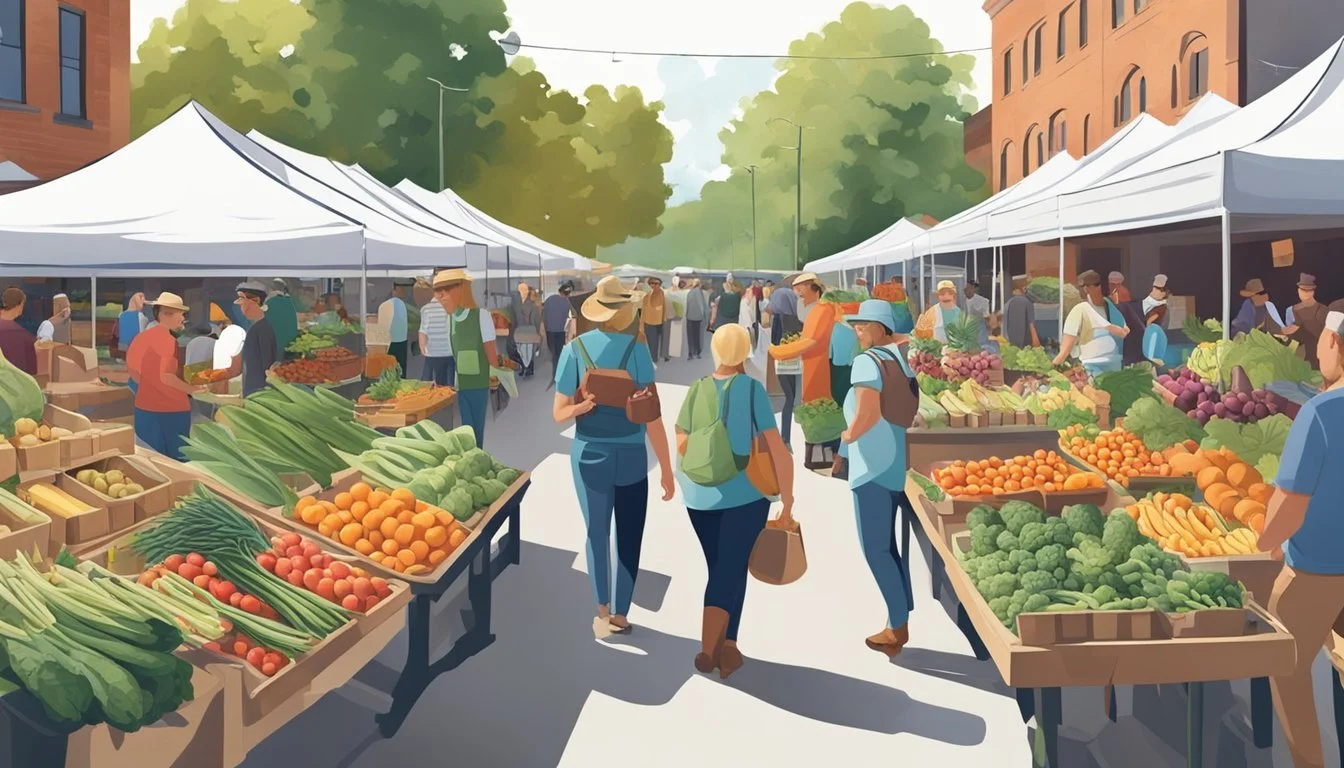Community Supported Agriculture (CSA) in Birmingham, AL
A Guide to Fresh, Local Produce
Community Supported Agriculture, commonly referred to as CSA, has become a pivotal element in fostering a sustainable food system in Birmingham, Alabama. This innovative model of food distribution connects local farmers directly with consumers. Through CSA programs, residents of Birmingham have the opportunity to purchase a share of a farm's harvest in advance, ensuring they receive a regular supply of fresh, locally grown produce throughout the farming season. This approach to agriculture not only guarantees fresher, more flavorful foods but also strengthens the local economy and supports the agricultural community.
In Birmingham, CSA members typically receive a wide array of fruits and vegetables harvested at their peak of ripeness, which translates into higher nutritional content. These programs often feature flexible options, with some offering additional items such as flowers, eggs, and pastured raised chicken. The seasonal nature of CSA shares encourages consumers to become more attuned to the growing cycles and promotes a diet that varies throughout the year.
The ripple effects of CSA in Birmingham go beyond nutritional benefits and economic support for small and family-owned farms. CSAs incubate a sense of connection between consumers and producers, fostering agriculture-supported communities. Participants in CSA programs become active stakeholders in the local food landscape, advocating for sustainability and resilience within their food systems. As Birmingham continues to cultivate its CSA programs, the partnership between farmer and consumer is evidently deepening, reshaping perspectives on food consumption and production in Alabama's burgeoning local food movement.
Understanding CSAs
Community Supported Agriculture (CSA) programs in Birmingham enable a partnership between local farmers and consumers, promoting sustainable agriculture and seasonal eating through the sale of CSA shares.
History of CSA Movement
The CSA concept originated in Japan in the 1970s, where the model was known as "teikei," a term that translates to "putting the farmers' face on food." This movement aimed to connect consumers with the source of their food directly. It spread to the United States in the 1980s, and since then, it has become a vital part of the local food system in many communities, including Birmingham.
CSA Program Structure
A typical CSA program functions on membership. Consumers purchase a share of the harvest upfront, which provides farmers with working capital at the start of the growing season. Members then receive a portion of the farm's produce throughout the agreed-upon time frame. For example:
Membership Duration: 10 weeks of Summer flowers; May 21-July 23
Price for Seasonal Shares: $200 per season
Food Shares:
Quarter food shares for $520
Half food shares for $760
Benefits of Joining a CSA
Joining a CSA offers both tangible and intangible rewards.
Freshness: Members receive food harvested at peak ripeness, ensuring maximum flavor and nutritional value.
Sustainability: Supports sustainable agriculture practices by providing farmers with direct, upfront support.
Community Connection: Members contribute to agriculture-supported communities, fostering a relationship with those who grow their food.
Membership in a CSA encourages community engagement and a local economy, forging a mutually beneficial partnership between farmers and consumers.
Local CSA Farms in Birmingham
Birmingham’s commitment to sustainable food practices is well represented by its network of CSA farms. These family-run farms offer shares of fresh, local produce, promoting a direct bridge between farmers and the community.
Boozer Farms
Boozer Farms, situated in Thorsby, AL, emphasizes a connection with nature, offering robust CSA programmes. They provide a variety of seasonal produce, which often includes heirloom varieties cultivated through environmentally conscious methods.
Mountain Sun Farm
Nestled in the heart of Alabama, Mountain Sun Farm brings organic farming methods to the forefront, supplying Birmingham with a bounty of organic produce. Their CSA shares are known for their diversity and sustainability, reflecting their dedication to both quality and eco-friendly practices.
Hepzibah Farms
Hepzibah Farms offers an assortment of fresh, locally-grown vegetables and fruits to its CSA members in the Birmingham area. This family farm embraces sustainable agriculture, ensuring that each harvest contributes to the health of the local ecosystem.
Jones Valley Teaching Farm
As an educational resource and a working farm, Jones Valley Teaching Farm stands out for its dual mission. This urban farm in the heart of Birmingham provides CSA shares while also educating future generations on the importance and practices of sustainable agriculture.
Stone Hollow Farmstead
Stone Hollow Farmstead is a purveyor of fine, artisanal products along with their CSA shares. The farm, located near Birmingham, combines traditional farming techniques with modern, sustainable practices to produce a wide range of high-quality, farm-fresh goods.
Through these CSAs, Birmingham benefits from a sustainable food system bolstered by the hard work and passion of local Alabama farmers. Each farm brings its unique approach to farming, but all share a commitment to cultivating food that's as good for the earth as it is for the table.
What to Expect with CSA Membership
When joining a Community Supported Agriculture (CSA) program in Birmingham, AL, members should expect a structured system that provides fresh, locally-grown produce throughout the growing season. A CSA membership not only brings seasonal harvest directly to your table but also involves financial support for the farmer's production costs.
Seasonal Harvest Calendar
Spring: Begins in March, includes leafy greens and early vegetables.
Summer: From May 21 to July 23, expect a colorful variety of fruits and vegetables.
Fall: Cooler weather crops begin July 30.
Winter: October 8 marks the start for winter harvests, focusing on root vegetables and hearty greens.
Share Sizes and Payment Options
Quarter Share: Ideal for individuals, $520.
Half Share: Suitable for small families, $760.
Payment is due at the start of the season, securing your share of the harvest.
Pickup and Delivery Details
Pickup: Members collect their shares weekly at designated locations around Birmingham.
Delivery: Some CSAs may offer home delivery services for an additional fee.
Community Engagement and Events
Members can engage in farm events, potlucks, and volunteer opportunities. Such activities foster a sense of community and connect members with the source of their food.
Environmental and Social Impacts
Community Supported Agriculture (CSA) in Birmingham, AL, has demonstrable effects on both environmental stewardship and social cohesion. Local farmers embrace sustainable practices, enhancing biodiversity and soil health, while residents form deeper connections with their food sources, fostering resilient communities.
Sustainable Farming Practices
CSAs in Birmingham encourage sustainable agriculture. Local farmers in the CSA network minimize their carbon footprint by reducing food transportation distances. They also often employ organic farming methods, which exclude the use of synthetic pesticides and fertilizers, leading to lesser environmental pollutants.
Biodiversity and Soil Health
Biodiversity is paramount in sustainable farming, and CSA farms often prioritize this aspect. Crop rotations and intercropping—planting different crops in proximity—are common practices that can naturally repel pests and improve soil fertility. These approaches maintain the health of the soil, which is a critical resource for long-term agricultural productivity.
Crop rotation: Fosters nutrient balance and reduces soil depletion.
Intercropping: Enhances soil structure and inhibits weed growth.
Connection to Local Food Systems
CSAs are a key component of local food systems. They provide consumers with fresh, organic produce and allow them to know exactly where their food comes from. This connection educates consumers about the seasonal nature of food production and instills a sense of responsibility towards supporting local agriculture.
Seasonal awareness: Links consumption patterns to seasonal availability of produce.
Support for local farmers: Direct financial support to those who grow food, helping sustain local agriculture.
Building a Resilient Community
Engagement in CSAs represents an investment in the area's resiliency. Members share the risks and rewards of farming with growers, which cultivates a collaborative spirit and strengthens community bonds. This partnership fosters a collective approach to food security and economic stability within Birmingham.
Shared risk and reward: Leads to solidarity in the community.
Collective approach: Encourages communal resilience in times of economic or environmental stress.
CSA Produce and Products
Community Supported Agriculture (CSA) in Birmingham, AL, provides a cornucopia of options ranging from organic produce to unique local specialties - all ensuring a flavor-packed and nutritious bounty throughout the seasons.
Types of Produce Offered
CSAs in Birmingham typically offer a variety of vegetables and fruits including, but not limited to, tomatoes, peppers, cucumbers, squash, and berries. Many CSAs embrace biodiversity in their offerings, ensuing a colorful and diverse array of produce. Subscribers can expect everything from leafy greens to root vegetables, often complemented by aromatic herbs.
Beyond Vegetables: Meat, Eggs, and More
Several Birmingham CSAs go beyond produce to include meat options such as beef, pork, and poultry, all sourced from local livestock. Eggs from pasture-raised chickens are also a staple. These items are often available as an add-on to the standard vegetable share or as part of a specialized CSA package.
Seasonal Recipes and Cooking Tips
To accompany their bounty, CSAs often provide recipes and cooking tips to highlight the best ways to prepare and enjoy the fresh seasonal ingredients. From simple salads and sides to more complex dishes, these suggestions are crafted to inspire kitchen creativity and enhance the CSA experience.
Specialty Items: Flowers, Honey, and Dairy
Additional CSA options may include cut flowers, honey, and various dairy products. These specialty items, often certified organic, add an extra layer of enjoyment and variety. Flower shares may offer seasonal blooms, while local honey and dairy products like cheese come from nearby farms committed to quality and sustainability within the local food system.
Challenges and Considerations
While Community Supported Agriculture (CSA) offers many benefits to both consumers and producers in Birmingham, AL, there are various challenges and considerations that potential members should be aware of. This section explores some of these aspects in detail to help individuals make informed decisions.
Understanding the Risks of CSA Membership
Members of a CSA should recognize that they share in the risks of the farming season. Inclement weather, pests, and other unforeseen issues can affect crop yields. This means that product availability might vary, and members may not receive the full anticipated quantity or variety of produce.
Evaluating Farming Practices and Certifications
Prospective CSA members should research the farming practices and certifications of the farm they are considering. This can include whether the farm employs sustainable farming methods, and if their practices are verified through certifications. Understanding these factors is important for those interested in the environmental impacts of their consumer choices.
Communication with Farmers
Effective communication between CSA members and farmers is crucial. It ensures members are informed about what they can expect in their shares and allows them to learn more about how their food is grown. Open lines of communication also strengthen the connection between consumers and producers, integral to the CSA movement.
Community-Supported Agriculture vs. Traditional Markets
When deciding between joining a CSA or shopping at traditional farmer’s markets, individuals should consider the differences in variety, consistency, and the experience of engagement with the food system. CSA can offer a deeper involvement in sustainable agriculture through a season-long commitment, while farmers markets generally offer a more traditional transactional experience for purchasing local goods.
By considering these points—risks, practices, communication, and market comparisons—individuals can thoughtfully engage with the CSA movement and make choices aligned with their values and preferences.
Supporting CSAs in Birmingham
In Birmingham, Alabama, supporting CSAs not only bolsters the local food system but also strengthens the sense of community between residents and local farmers. Engaging with CSAs provides educational opportunities and ensures access to fresh, locally-produced food.
How to Join a CSA in Birmingham
Individuals looking to join a CSA in Birmingham can explore several family-operated farms offering seasonal memberships. Membership fees are typically paid annually and cover the cost of farm production. In return, members receive a weekly share of the harvest. To join, interested parties should:
Contact local farms directly to inquire about availability and sign-up deadlines.
Attend local farmers markets where CSA representatives are often available to provide information.
Follow farms on social media for updates and subscription openings.
Promoting Local CSAs
Promotion of local CSAs can be done through:
Word-of-mouth: Share your CSA experiences with friends and family.
Social media: Follow and share CSA farm posts on platforms like Facebook and Instagram.
Community events: Participate in local events and distribute CSA brochures or speak about your experiences.
Educational Resources and Community Outlets
Birmingham offers a variety of resources and outlets to educate the public on the benefits of CSAs:
Workshops and Farm Tours: Farms often host events to educate members about sustainable practices and local food production.
Online platforms: Websites and local blogs publish articles and guides on CSA benefits and how to get involved.
School Programs: Some local farms partner with schools to offer programs that teach children about agriculture and healthy eating.
Local Spotlights and Testimonials
In Birmingham, AL, the CSA model isn't just a method of food distribution; it embodies a thriving sense of community between local farms and their members. Here, CSA goes beyond fresh produce to cultivate genuine connections and share powerful stories.
Featured Birmingham CSA Stories
MannaMarket Organic CO-OP and Food Hub: At the forefront of Birmingham's CSA initiatives, MannaMarket CO-OP operates with a strong commitment to organic produce and community enrichment. Regular newsletters inform members about farm happenings, forging a transparent relationship between the farm and the consumers.
Seasonal Harvest CSA: This local CSA farm is lauded for its dedication to seasonal farming practices. By following nature's rhythms, they ensure members receive the freshest and most flavorful CSA share, while also educating them on the benefits of eating seasonally.
Member Experiences and Reviews
Jane Doe: "Joining the local CSA transformed my family's eating habits. We anticipate the weekly newsletter and the surprise of what's in our share. There's a palpable sense of community at each pickup."
The Thompson Family: "Supporting our local farm through CSA has been enlightening. We value the personal connection and the assurance that our food is sustainably sourced."
Andrew Li: "As a food enthusiast, I find that Birmingham's CSA scene truly stands out. The quality of produce I receive is unmatched, and it's fulfilling to know I'm making a difference in the local community."
CSA Events and Seasonal Highlights
In Birmingham, AL, community supported agriculture (CSA) programs punctuate the year with a variety of events. These gatherings are often the highlights of the season, bringing together farmers and subscribers to celebrate the peak of ripeness and the joy of the harvest.
Annual Kickoff and Wrap-Up Events
Spring Kickoff
At the onset of the growing season, CSA programs typically host kickoff events. These are opportunities for community members to meet the farmers, sign up for their CSA share, and learn about what to expect in the coming months. For instance, some farms offer a spring food share starting in mid-March, giving early subscribers access to fresh, local produce as soon as it becomes available.
Fall Wrap-Up
As the main growing season winds down, CSA farms often celebrate with wrap-up events to thank their members. These might include farm-to-table dinners featuring dishes made with ingredients sourced directly from the CSA program's harvest, allowing members to savor the flavors of the season one last time before winter.
Seasonal Celebrations and Harvest Festivals
Summer Celebrations
During the months of May through July, when summer crops reach their peak of ripeness, CSA programs in Birmingham might host various events to celebrate the bounty. Festivities could range from u-pick days, where members can gather their own fresh produce, to workshops on preserving the summer's harvest.
Fall Harvest Festivals
Come fall, as the CSA's summer food shares end, there is a transition into the autumn season. Harvest festivals emerge as a pivotal part of CSAs in Birmingham, with farms offering events from late July through October. These festivals are marked by the collection of fall and winter produce, with special attention to the end of the season's flowers and crops.
Each event serves not only as a celebration but also as an educational experience where members can learn more about sustainable agriculture and the importance of eating seasonally.
Resources for Further Knowledge
To deepen their understanding of Community Supported Agriculture (CSA) in Birmingham, AL, readers can explore a variety of resources. These include insightful books and articles, engaging online communities, and hands-on workshops. They cater to those interested in sustainable agriculture, organic farming, and strengthening the local food system by connecting with like-minded individuals through educational materials and cooperative efforts.
Books and Articles
Books:
Sustainable Market Farming by Pam Dawling: An in-depth guide for small-scale farmers focusing on organic, sustainable practices.
The Organic Farmer's Business Handbook by Richard Wiswall: Offers business advice for farmers looking to improve profitability in sustainable ways.
Articles:
Look for articles in publications such as Mother Earth News or Acres U.S.A., which often feature topics on sustainable agriculture and CSAs.
Online Forums and Social Media Groups
Forums:
The National Sustainable Agriculture Information Service: Offers forums on a range of topics including CSAs and organic farming.
Social Media Groups:
Facebook and LinkedIn groups dedicated to CSA and sustainable agriculture help connect community members in Birmingham and across the United States. Examples include CSA Innovation Network and Urban Farming.
Workshops and Educational Programs
Workshops:
Local farms that offer CSA shares may also host workshops on organic farming and sustainability practices.
Educational Programs:
Universities such as the University of Alabama at Birmingham might offer programs or conferences related to sustainable agriculture and local food systems.

